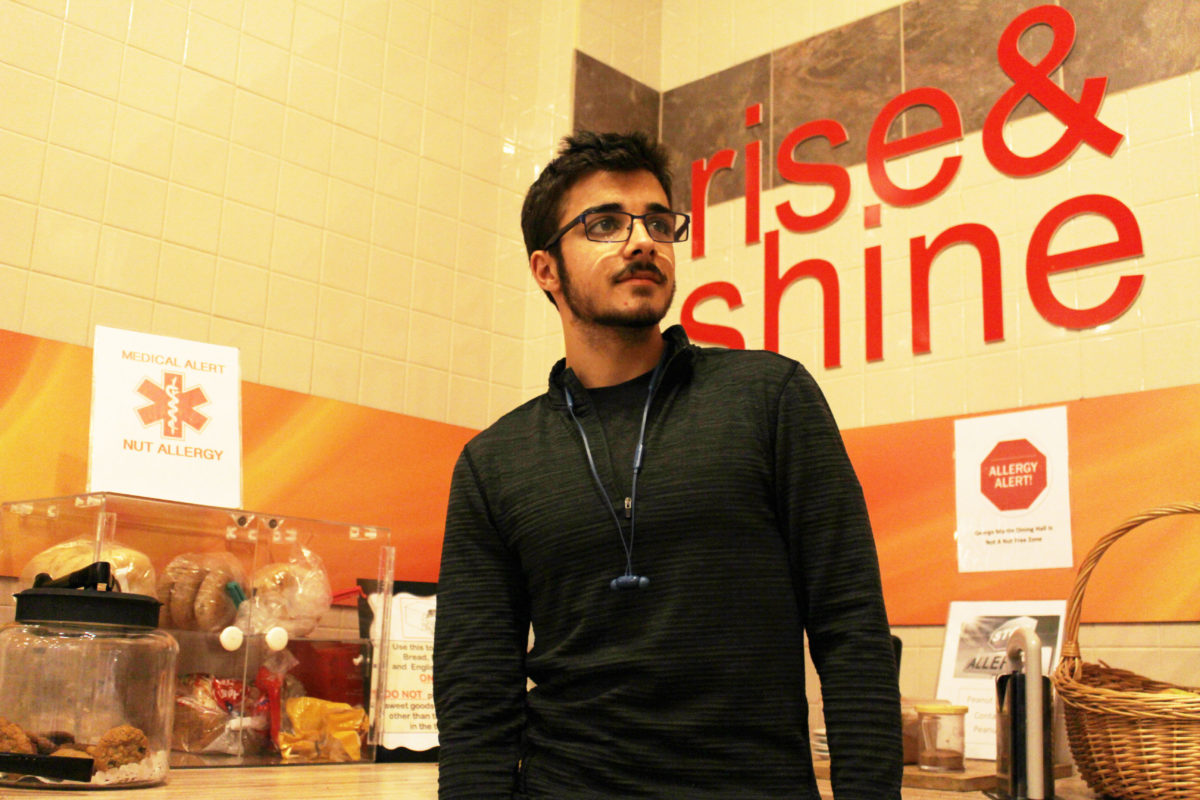First-year student Jared Durelle suffered an allergic reaction to peanuts while eating in the school’s cafeteria on Oct. 18.
Durelle has a severe allergy to peanuts which he said makes him careful about what he eats.
“I nearly died. If it was another student, they would’ve been dead,” he said.
“I’ve been doing this for 18 years, that I’ve been living with allergies, and it really could’ve killed somebody.”
Before eating the vegetable dish which caused the reaction, Durelle said he asked the chef if it contained peanuts because it wasn’t labelled. The chef said no.
“I feel it was an oversight and stupid that they didn’t actually label something,” Durelle said.
After eating some of the dish, Durelle realized he was having an allergic reaction and he immediately went to the campus pharmacy where he bought Benadryl. His friend, Garrett Moore, walked him to the hospital.
During the walk, Durelle had trouble breathing, severe hives appeared on his skin and he was vomiting blood.
After eight hours at the hospital, Durelle said he wants nothing more than an apology from the president of the university, Dawn Russell.

“I specifically asked for the president to apologize to my mother and that’s all I wanted,” Durelle said.
Russell responded the following day via email, apologizing to Durelle and his mother. The cafeteria also immediately started making changes to minimize the chance of the same situation happening again.
Jeffrey Carleton, associate vice-president communications, spoke on behalf of Aramark, the cafeteria’s main distributor.
“The main thing they’ve done is removed nuts from all of their entrée recipes,” Carleton said.
“They’ve added more signage around their various stations and also posted signs around the residence dining halls stating that they are not nut-free.”
Aramark believes it was cross-contamination issue that occurred outside of St. Thomas which caused Durelle to have an allergic reaction.
“You can never be 100 per cent certain, but that’s what they believe,” Carleton said.
Carleton also said Aramark will begin working closely with student services to identify what students are allergic to prevent similar accidents from happening.
“If students have medical issues, and they’ve indicated as such on their application form, we have to make sure we have a proper flow of information, so people are aware of it,” he said.
Durelle believes it was a mistake that could have been prevented through proper communication.
“[Aramark should] warn people about what allergens are used, make the recipes readily available for the dish that they have and make sure that the staff actually talks to each other.”

